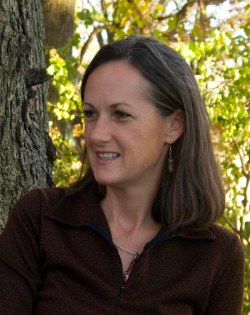NAGPRA and Tribal Relations Committee

- Professor, Anthropology
- darlene.applegate@wku.edu
- FAC 237
- 270-745-3759
Current courses:
ANTH 125 Introduction to Biological Anthropology
ANTH 300 Forensic Anthropology
ANTH 305 Paleoanthropology: Human Origins and Evolution
ANTH 360 Applied Anthropology
ANTH 395 Lab Practicum in Archaeology or Biological Anthropology
ANTH 432/432G Field Course in Archaeology
ANTH 434/434G Graveyard Archaeology
ANTH 452 Bioarchaeology
ANTH 493 Archaeological Stewardship
ANTH 495 Directed Study
ANTh 499 Senior Seminar
Past courses:
ANTH 130 Introduction to Archaeology
ANTH 335 Old World Prehistory
ANTH 336 New World Prehistory
ANTH 436 Applied Archaeology
ANTH 438 Archaeological Lab Methods
ANTH 450/450G Modern Human Biological Variation
Ph.D., Anthropology, The Ohio State University
M.A., Anthropology, The Ohio State University
B.A., Anthropology and Geology, Miami University
I am an archaeologist with a background in biological anthropology and geology. I teach undergraduate courses in archaeology and biological anthropology, several of which have graduate components. My research interests include Eastern Woodlands archaeology, cave and rockshelter archaeology, graveyard / mortuary archaeology, settlement archaeology, site formation processes, lithic analysis, and bioarchaeology. I currently serve as the Anthropology Program Director. I am faculty advisor for the Anthropology Club and the former director of the WKU Anthropology Lab. I am an active member of the Kentucky Organization of Professional Archaeologists and a member of the Living Archaeology Weekend Steering Committee. I have been a principal investigator of several grant-funded projects, including an archaeological site stewardship program at Mammoth Cave National Park and an archaeological survey of the WKU Upper Green River Biological Preserve. I also conduct Section 106 archaeological surveys.
Phase I Archaeological Survey of the Lawler Bend Tract at the Western Kentucky University Green River Preserve, Hart County, Kentucky (2022). Prepared for Western Kentucky University, Bowling Green, 47 pp.
Ethnographic Overview and Assessment of Abraham Lincoln Birthplace and Childhood Home National Historical Park, Phase III Final Report (2021). Prepared for Abraham Lincoln Birthplace and Childhood Home National Historical Park, Hodgenville, KY, 555 pp. Lead author: Kate Hudepohl, Western Kentucky University.
Ethnographic Overview and Assessment of Mammoth Cave National Park, Phase III Final Report (2021). Prepared for Mammoth Cave National Park, Mammoth Cave, KY, 894 pp. Co-author: Kate Hudepohl, Western Kentucky University.
American Indian Textiles and Pioneer Textiles (2021). Executive Producer, The Virtual Living Archaeology Weekend Video Series, Episode 1 and Episode 2. Kentucky Organization of Professional Archaeologists, Lexington. www.livingarchaeologyweekend.org/video-series
Phase I Archaeological Survey for the Proposed Dover-Minerva Road Water Main Replacement Project in Northwestern Mason County, Kentucky (2020). Prepared for Bluegrass Engineering, Georgetown, KY, 126 pp.
Living Archaeology Weekend: Building a Bridge to the Past through Technology (2018). In Y la Arqueología Llegó al Aula: La Cultura Material y el Método Arqueológico para la Enseñanza de la Historia y el Patrimonio [When Archaeology Reaches the Classroom: Material Culture and Archaeological Methods for Learning History and Heritage], edited by Alejandro Egea Vivancos, Laura Arias Ferrer and Joan Santacana, pp. 253-289. Ediciones Trea, Gijon, Spain. Co-Authors: A. Gwynn Henderson, Wayna L. Adams, Tressa T. Brown, and Christy W. Pritchard with Eric J. Schlarb and Nicolas R. Laracuente.
The Early-Middle Woodland Domestic Landscape in Kentucky (2013). In Landscapes and People of the Early and Middle Woodland Southeast, edited by Alice Wright and Edward Henry, p. 19-44. University Press of Florida, Gainesville.
Archaeological Evidence of Historic Mining at Forestville Saltpeter Cave (15Ht94), Hart County, Kentucky (2013). Proceedings of the 10th Mammoth Cave National Park Research Symposium, edited by Shannon Trimboli, pp. 109-117. Mammoth Cave National Park, KY. Co-author: Emily Duke, Western Kentucky University.
Woodland Period (2008). In Past Accomplishments and Future Directions: The Kentucky State Archaeology Plan (2nd edition), edited by David Pollack, pp. 341-608. Kentucky Heritage Council, Frankfort.
Archaeological Survey of the Western Kentucky University Upper Green River Biological Preserve, Hart County, Kentucky. Volume I: Literature Review and Phase I Survey (May 2007). Prepared for Western Kentucky University, Bowling Green, 496 pp.
Woodland Period Systematics in the Middle Ohio Valley (2005). Co-edited with Robert C. Mainfort, Jr., Arkansas Archaeological Survey. Includes my preface 'The Good Servant and the Bad Master' (pp. xi-xx) and chapter 'Woodland Taxonomy in the Middle Ohio Valley: A Historical Overview' (pp. 1-18). University of Alabama Press, Tuscaloosa.
Phase I Archaeological Survey for a Proposed Health Care Facility in Bowling Green, Warren County, Kentucky (September 2004). Submitted to Bowling Green-Warren County Primary Care Center, Bowling Green, KY, 67 pp.
Evidence of Differential Mortuary Treatment from the Watkins Site (15Lo12), a Woodland-Mississippi Period Burial Mound in South-Central Kentucky (2002). Proceedings of the 21st Mid-South Archaeological Conference: Ethnicity in Archaeology, edited by C. A. Buchner, pp. 33-45. Panamerican Consultants Special Publication No. 2. Panamerican Consultants, Inc., Memphis.
Artifact Displacement and Damage Resulting From Human Trampling (2002). Bulletin Voor Archeologische Experimenten en Educatie, pp. 5-8. Leiden, the Netherlands.
Archeological Assessment of the Proposed Parking Lot Drainage Improvement Project Package 187, Mammoth Cave, Kentucky (December 2002). Submitted to Mammoth Cave National Park, Mammoth Cave, KY, 69 pp.
The Watkins Site (15Lo12) Revisited: Previous Research, New Interpretations, and Recent Artifact Analysis (2000). In Current Archaeological Research in Kentucky Volume 6, edited by D. Pollack and K. J. Gremillion, pp. 121-143. Kentucky Heritage

